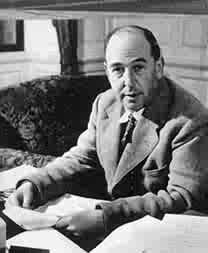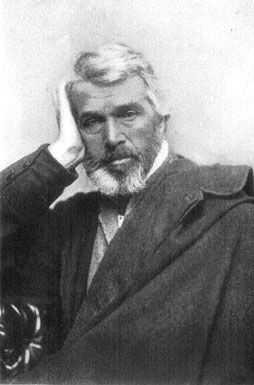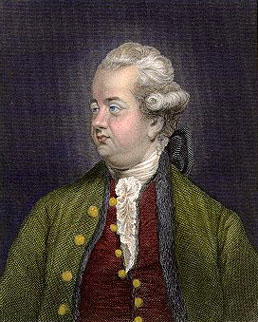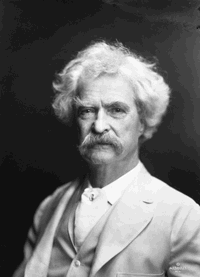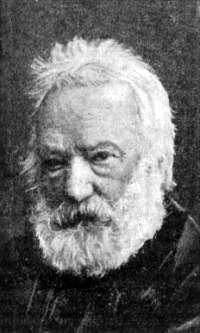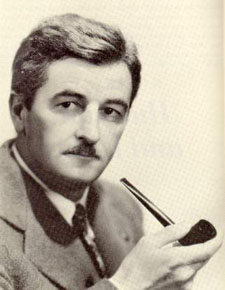When I was in seminary at
SES my wife and I lived around the corner from a group of Jehovah's Witnesses (JWs). Needless to say, we would get frequent visits. In one of my many conversations with these JWs, one of them asked me if I believed Jesus was 'a god' or God. Now I have had many encounters with JWs long before moving to North Carolina for seminary, and never had any JW ask me that particular question (usually the topics discussed are on other issues and then lead to the deity of Jesus).
However, on this occasion, that question was thrown at me by one of these JWs. I answered the question, and of course was quickly "corrected" by the JW that I was wrong to believe that Jesus is God.
(*Now, when witnessing to JWs my approach is never to start with the deity of Jesus since most JWs have heard every objection out there. I believe there are better approaches to witnessing to a JW than to begin with the deity of Jesus.)
When I was told I was' wrong' the JW who pointed out my 'error' quickly pulled out his Watchtower edition of the Greek Scriptures (of course this the New World Translation of the Greek Scriptures, and is wrought with serious problems). He quickly turned to John 1:1 to point out to me that the 'Greek Texts' actually declare that Jesus is merely 'a god' and not Jehovah God.
Well, needless to say, this 'hacked me off.' So I went into my house and grabbed my own copy of the Greek New Testament. I then proceeded to explain to this JW the argument that I have posted below as to why I thought the Watchtower translation of the Greek New Testament was in serious error. Needless to say, when I was detailing my argument it went in one ear and right out the other. The JW had no grasp of New Testament Greek, and he was merely parroting what the Watchtower had taught him.
Below is the argument I used to defend the deity of Jesus from John 1:1. I also presented this as a paper at the
National Conference on Apologetics, Cults, and Other Religions in the year 2000, sponsored by SES.
While I do not recommend this as a witnessing approach to JWs (there are better ways to build up to the essential doctrines of Christianity), I post it here since I think it is a good tool for better understanding the errors in the Watchtower's Greek New Testament.
(You might want to get a copy of the Greek New Testament in front of you as you read the argument below - and if you have a Watchtower edition of the Greek New Testament then that would be helpful to have in front of you as well)
Here is the argument:
____________________________________An Exposition of John 1:1
I. The New World Translation of John 1:1A. The Jehovah’s Witnesses (JWs) in the text of John 1:1 focus their attention upon
arthrous (the definitive article “the” before the noun) and
anarthrous (the absence of the definitive article “the” before the noun).
B. In the text of John 1:1 the outcome of the JWs focus on
arthrous and
anarthrous is a distinction between the divine (
theos) as
qualitative or
quantitative. (keep a close eye on these distinctions)
1. To say that “divine” (
theos) is qualitative is simply a description of quality about the Word or Logos. This qualitative description in no way describes that
theos (in John 1:1) was in fact Jehovah God. (For a description of why the New World translation (NWT) believes this to be the case refer to
The New World Translation of the Christian Greek Scriptures (Brooklyn, NY: Watchtower Bible and Tract Society, Inc., 1950), 773-774).
2. To say that “divine” (
theos) is quantitative is to actually declare what the noun is, namely, Jehovah God, in a universal or regular usage as in John 1:1 (
theon) and subsequent passages. (Refer to parenthesis note after 1 above).
3. The NWT translators conclude from John 1:1 that
theos is qualitative and
theon is quantitative. This conclusion is due to the definite article that is used with
theon but not used with
theos.
C. The JWs draw a distinction between theon and theos in John 1:1.1. This distinction is drawn by an emphasis being placed on the definite article before
theon and the fact that there is no definite article before
theos.
2. The JWs conclude that since
theon contains the definite article “the” that this is actually referring to “The God,” namely Jehovah God. Thus this is to declare that
theon is indeed quantitative. However,
theos does not include the definite article thereby drawing a specific distinction between two nouns. Therefore,
theos must be merely qualitative.
3. According to the NWT “it is presumptuous to say that such a definite article is to be understood so that the sentence should therefore be translated ‘and the Word was God.’ That would mean that the Word was the God with whom the Word was said to be. This is unreasonable; for how can the Word be with the God and at the same time be that same God?” (
The New World Translation of the Christian Greek Scriptures (Brooklyn, NY: Watchtower Bible and Tract Society, Inc., 1950), 774, emphasis mine)
II. Responding to the New World Translation of John 1:1A. For the sake of argument, assuming that the NWT is correct (which I emphatically do not agree that it is); it is still
incorrect to conclude that the
anarthrous theos could be translated as “a god.” This is so for several reasons.
1. There is no indefinite article in the Greek Language.
2.
Theos itself is a predicate nominative noun. Therefore, to attach the meaning “divine” to it is improper semantics (meaning). There is another Greek word which carries the meaning “divine,”
theias (2 Peter 1:3-4) or
theion (Acts 17:29) depending on the context in which it is used. Both uses are adjectives, not nouns, while
theotes (meaning Divinity, divine nature) is a noun and is used in Romans 1:20. Therefore, if John meant to communicate the idea or meaning of “divine” one of those words would have been employed, not the actual word
theos.
3. Also, for the sake of argument, if
theos were admitted to be qualitative, one must ask if John actually meant by this use:
a) that which was attributed to the Caesars as being “divine.”
b) that which was attributed to Satan, “the god of this world.”
(II Cor. 4:4)
c) that which is attributed to God as being divine.
d) another category of divinity which the NWT has discovered and given its meaning to Jesus in the verse.
(I owe the above four points to Robert H. Countess and his work titled
The Jehovah’s Witnesses’ New Testament Phillipsburg, New Jersey: Presbyterian and Reformed Publishing Co., 1982).
Therefore, the NWT along with the JWs must ultimately unpack more than is necessary to simply defend their claim that
theos is used qualitatively. Not to mention the fact that the JWs are placing meaning upon a word that is actually not there in the Greek texts (i.e.
Theos ≠ “divine”).
B. If the NWT is going to maintain that
theos is qualitative then they must do so consistently. In other words, there must
not be any uses of the
anarthrous theos referring to Jehovah God in the
entire New Testament Text (especially the Gospel of John). All that is needed is one reference and their conclusion can be proven false. In John 8:54
anarthrous theos is used in reference to Jehovah God. Hence, the NWT is wrong in their conclusions.
C. Granting agreement with the NWT that
arthrous theos is quantitative due to the definite article, the JWs are left with the problem of explaining all the uses of
arthrous theos with reference to Jesus. For example, John 20:28 describes Thomas as crying out, “The LORD of Me, and the God of me.” (literally translated). In this passage,
arthrous theos is used with reference to Jesus. But this contradicts the NWT claim that
arthrous theos is quantitative and is used
only to describe what the noun is, namely Jehovah God.
D. Another problem that the NWT must confront is the fact that the definite article which is used with
theon denotes a quantitative use in John 1:1. This must be consistently the case if it is a hard and fast rule as the NWT has made it. However, it is not used, for example, in John 1:18 with the same noun (
theon). If we conclude, as the NWT has, that the definite article is what causes the noun to be quantitative, and it is not used in John 1:18, but yet the NWT renders that noun as referring to Jehovah God, then the NWT committee have not only contradicted themselves, but their translation is also unreliable and we have further grounds to dismiss it as erroneous.
Works Consulted:
The Complete Biblical Library, Springfield, Missouri: World Library Press, Inc. 1986.
Countess, Robert H.,
The Jehovah’s Witnesses’ New Testament, Phillipsburg, New Jersey: Presbyterian and Reformed Publishing Co., 1982.
New World Translation of the Christian Greek Scriptures, Brooklyn, NY: Watchtower Bible and Tract Society, Inc., 1950.








